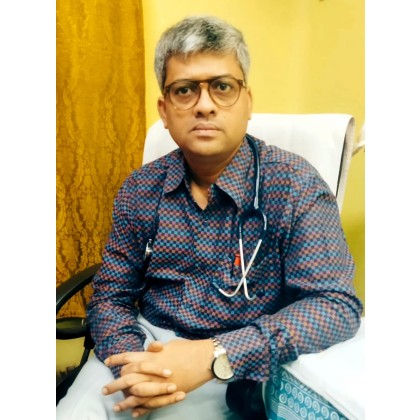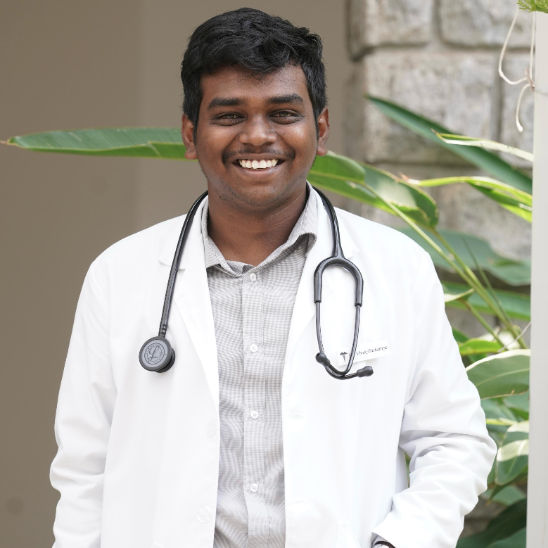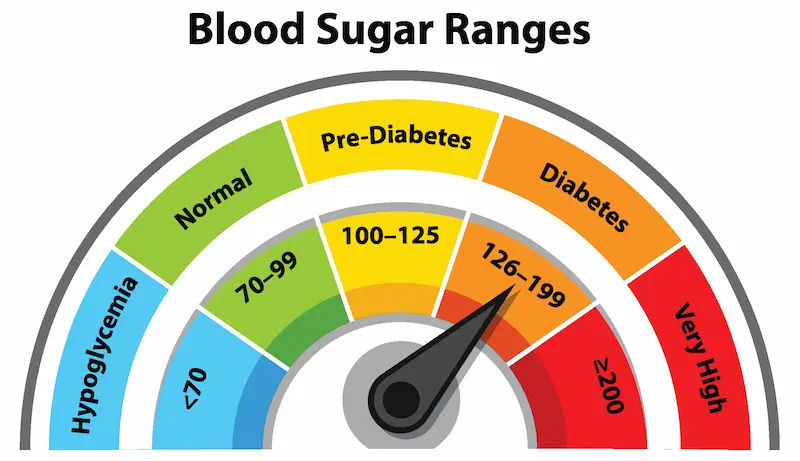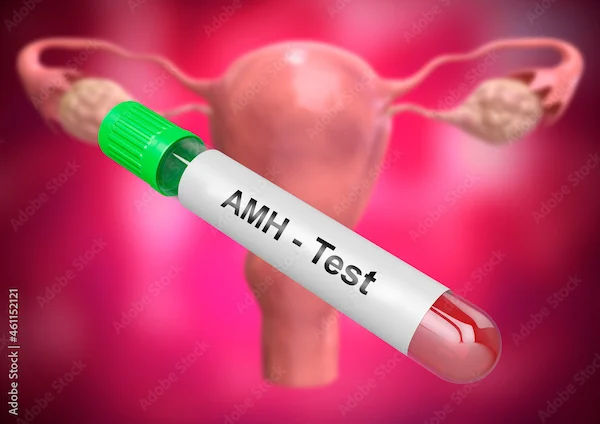Guide to Normal Blood Sugar Levels
Explore the guide to normal blood sugar levels, including fasting, post-meal, and HbA1c ranges. Learn how to monitor and maintain healthy glucose levels for better overall health.

Written by Dr. Shaik Abdul Kalam
Reviewed by Dr. Dhankecha Mayank Dineshbhai MBBS
Last updated on 13th Jan, 2026

Navigating the world of blood sugar can feel overwhelming. You hear terms like "glucose," "A1C," and "insulin resistance," but what do they actually mean for your health? Understanding your blood sugar levels is one of the most powerful steps you can take for your long-term well-being. It's not just about managing diabetes; it's about proactive prevention, sustained energy, and overall vitality. This guide will demystify the numbers, explain why they matter, and provide you with a clear framework for what’s considered normal. We'll break down the key tests, explore the factors that influence your levels, and offer practical tips for maintaining healthy glucose levels through diet and lifestyle. Consider this your one-stop resource for taking control of your metabolic health.
What is Blood Glucose?
Blood glucose, commonly known as blood sugar, is the main sugar found in your blood. It serves as the primary source of energy for your body's cells. This glucose comes from the food you eat, particularly carbohydrates like bread, potatoes, and fruit. Your digestive system breaks these carbs down into glucose, which is then absorbed into your bloodstream. From there, a hormone called *insulin, produced by your pancreas, acts like a key, unlocking your cells to allow glucose to enter and be used for energy. Maintaining a balance is crucial—too much or too little glucose in the blood can lead to significant health problems.
Why Maintaining Normal Levels is Crucial?
Keeping your blood sugar within a normal range is essential for immediate and long-term health. Consistently high blood sugar (hyperglycemia) can cause damage to your nerves, blood vessels, and organs over time, increasing the risk of heart disease, stroke, kidney disease, vision problems, and nerve issues. On the other hand, low blood sugar (hypoglycemia) can cause dizziness, confusion, sweating, and in severe cases, loss of consciousness. By aiming for normal blood glucose levels, you support stable energy, reduce food cravings, protect your organs, and significantly lower your risk for chronic diseases.
Consult Top Doctors for Personalised Advice
Defining "Normal": Blood Sugar Levels by Test
Fasting Blood Glucose Test
This is one of the most common tests. It measures your blood sugar after an overnight fast of at least 8 hours (typically done before breakfast). It provides a baseline reading of how your body manages sugar without the immediate influence of food.
Normal level: Less than 100 mg/dL (5.6 mmol/L)
Prediabetes (Impaired Fasting Glucose): 100 to 125 mg/dL (5.6 to 6.9 mmol/L)
Diabetes: 126 mg/dL (7.0 mmol/L) or higher on two separate tests
Hemoglobin A1C Test (HbA1c)
Unlike a snapshot test, the A1C test provides an average of your blood sugar levels over the past 2-3 months. It measures the percentage of hemoglobin (a protein in red blood cells) that is coated with sugar. This is a crucial tool for diagnosing prediabetes and diabetes and for monitoring long-term glucose control.
Normal level: Below 5.7%
Prediabetes: 5.7% to 6.4%
Diabetes: 6.5% or higher
Oral Glucose Tolerance Test (OGTT)
This test is often used to diagnose gestational diabetes. It involves first taking a fasting blood sugar reading, then drinking a sugary liquid, and having your blood sugar tested again after 2 hours. It shows how efficiently your body clears glucose from the bloodstream.
Normal level (2 hours after drinking liquid): Less than 140 mg/dL (7.8 mmol/L)
Prediabetes (Impaired Glucose Tolerance): 140 to 199 mg/dL (7.8 to 11.0 mmol/L)
Diabetes: 200 mg/dL (11.1 mmol/L) or higher
Random Blood Glucose Test
This test can be taken at any time, regardless of when you last ate. While not used for diagnosis on its own, a very high reading can indicate a problem.
A level of 200 mg/dL (11.1 mmol/L) or higher, especially when combined with symptoms of diabetes (like excessive thirst or urination), suggests diabetes.
Get Your Blood Sugar Levels Assessed
Normal Blood Sugar Levels Chart
This chart provides a quick, at-a-glance reference for the key metrics discussed.
| Test Type | Normal Level | Prediabetes Range | Diabetes Range |
| Fasting Blood Glucose | < 100 mg/dL (5.6 mmol/L) | 100–125 mg/dL (5.6–6.9 mmol/L) | ≥ 126 mg/dL (7.0 mmol/L) |
| Hemoglobin A1c (HbA1c) | < 5.7% | 5.7% – 6.4% | ≥ 6.5% |
| Oral Glucose Tolerance (2-hour post 75g glucose) | < 140 mg/dL (7.8 mmol/L) | 140–199 mg/dL (7.8–11.0 mmol/L) | ≥ 200 mg/dL (11.1 mmol/L) |
Factors That Influence Your Blood Sugar
Your glucose levels are not static; they fluctuate throughout the day based on a variety of factors. Understanding these can help you make sense of your numbers.
Food and Drink: The type and quantity of carbohydrates have the most immediate impact. Simple carbs (sugar, white bread) cause a rapid spike, while complex carbs (whole grains, vegetables) lead to a slower, more gradual rise.
Physical Activity: Exercise makes your cells more sensitive to insulin and helps muscles use glucose for energy, effectively lowering blood sugar levels. Both aerobic (walking, running) and resistance (weight lifting) training are beneficial.
Medications: Certain medications, including steroids and some for high blood pressure, can raise blood sugar. Conversely, diabetes medications and insulin are designed to lower it.
Illness and Stress: When you're sick or stressed, your body releases hormones like cortisol and adrenaline, which can cause your liver to release more glucose, leading to higher levels.
Hormonal Changes: Fluctuations during the menstrual cycle and menopause can affect insulin sensitivity and blood sugar control in women.
Tips for Maintaining Healthy Blood Sugar Levels
Achieving and maintaining normal blood glucose levels is largely within your control through daily habits. Here’s how you can support your body.
Focus on a Balanced Diet
What you eat is your most powerful tool. Prioritize a diet rich in:
Fiber: Found in vegetables, fruits, legumes, and whole grains, fiber slows the absorption of sugar, preventing sharp spikes.
Lean Protein: Include sources like chicken, fish, tofu, and legumes in your meals. Protein promotes satiety and has a minimal effect on blood glucose.
Healthy Fats: Avocados, nuts, seeds, and olive oil help slow digestion and carbohydrate absorption.
Limit: Highly processed foods, sugary beverages, and refined carbohydrates like white pasta and pastries.
Incorporate Regular Exercise
Aim for at least 150 minutes of moderate-intensity aerobic activity (like brisk walking, cycling, swimming) per week, spread across most days. Don't forget strength training at least two days a week, as building muscle helps your body use insulin more efficiently.
Manage Stress and Prioritize Sleep
Chronic stress and poor sleep can wreak havoc on your hormones and, consequently, your blood sugar. Practice stress-reduction techniques like meditation, deep breathing, or yoga. Aim for 7-9 hours of quality sleep per night to help regulate the hormones that control appetite and blood sugar.
When to See a Doctor?
It's important to get regular check-ups, especially if you have risk factors for diabetes like family history, being overweight, or having high blood pressure. You should consult your doctor immediately if you experience classic symptoms of high blood sugar, including:
Excessive thirst and hunger
Frequent urination
Unexplained weight loss
Blurred vision
Extreme fatigue
Slow-healing sores
Early detection of prediabetes is a critical window of opportunity to prevent the progression to type 2 diabetes through lifestyle changes.
Conclusion
Understanding and maintaining normal blood sugar levels is a cornerstone of lifelong health. It's not about achieving perfection with every meal but about building consistent, sustainable habits that support your body's natural balance. By knowing your numbers through recommended tests, fueling your body with nutrient-dense foods, staying active, and managing stress, you empower yourself to reduce your risk of chronic disease and enjoy greater daily energy and vitality. This guide provides the foundation, but your journey is personal. Use this knowledge to start a conversation with your healthcare provider about your metabolic health and create a plan that works for you.
Consult Top Doctors for Personalised Advice
Consult Top Doctors for Personalised Advice

Dr. Tanmaya Kumar Sahu
General Physician/ Internal Medicine Specialist
12 Years • MBBS, MD ( Internal Medicine )
Bhubaneswar
Apollo Hospitals Old Sainik School Road, Bhubaneswar
(25+ Patients)

Dr. Anand Ravi
General Physician
2 Years • MBBS
Bengaluru
PRESTIGE SHANTHINIKETAN - SOCIETY CLINIC, Bengaluru

Dr. Arif Ahmed
General Physician/ Internal Medicine Specialist
9 Years • MBBS, MD (Genl. Med.)
Kolkata
MCR SUPER SPECIALITY POLY CLINIC & PATHOLOGY, Kolkata

Dr. S A Mallick
General Physician/ Internal Medicine Specialist
25 Years • MBBS , MD
Kolkata
Dr. S A Mallick's Chamber, Kolkata
(25+ Patients)

Dr. Vivek D
General Physician
4 Years • MBBS
Bengaluru
PRESTIGE SHANTHINIKETAN - SOCIETY CLINIC, Bengaluru



